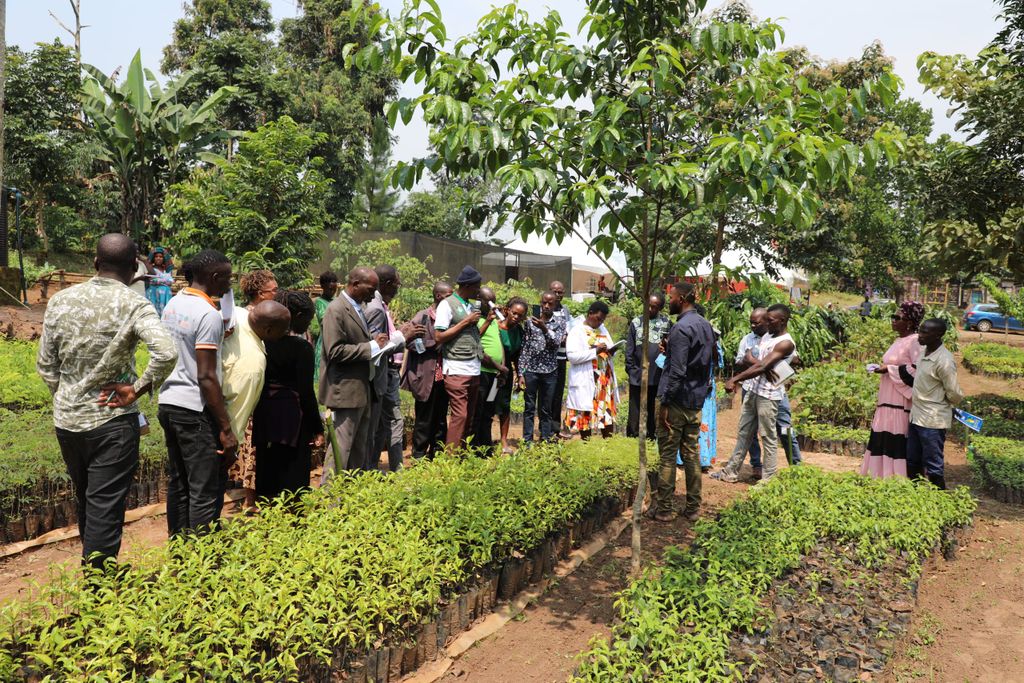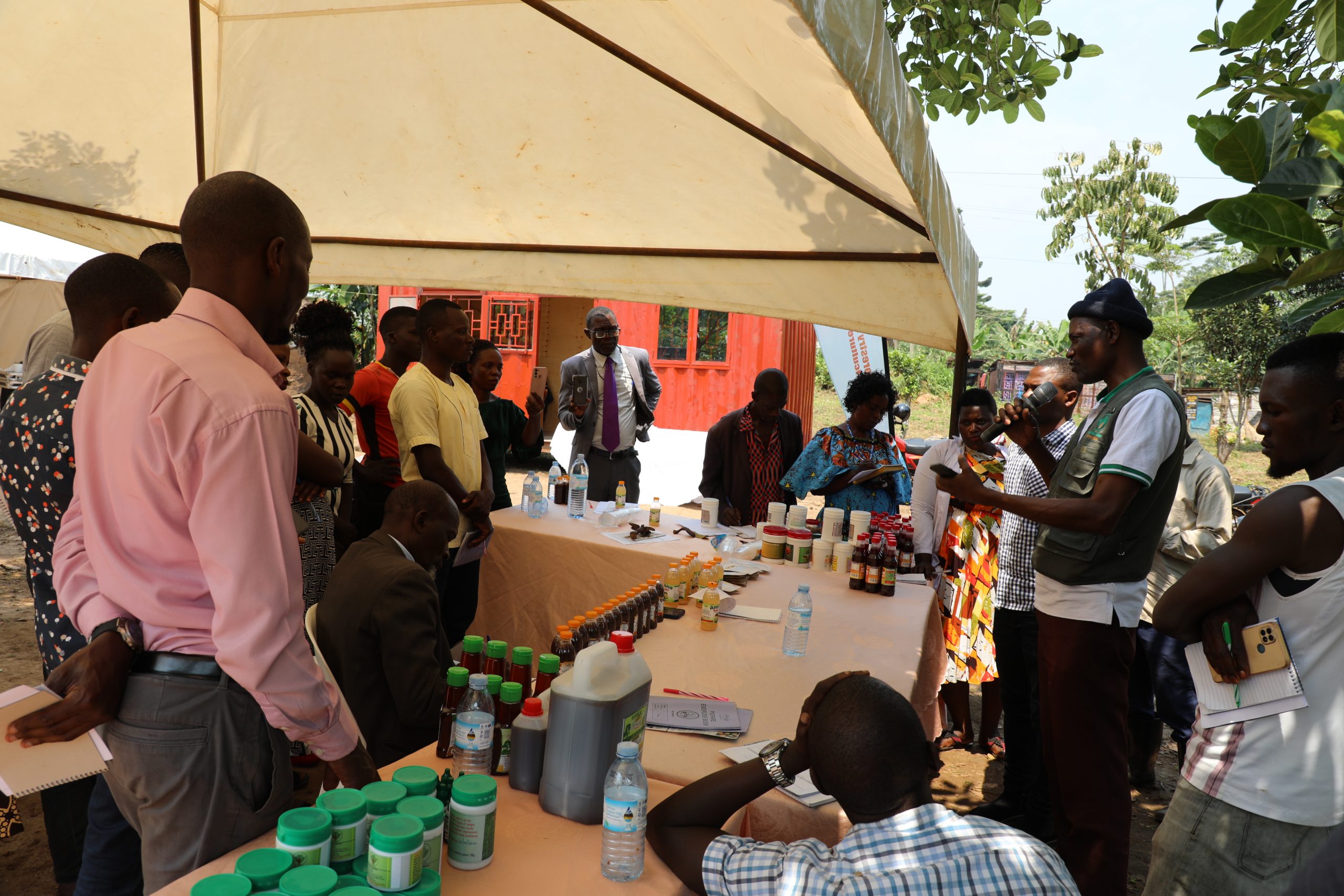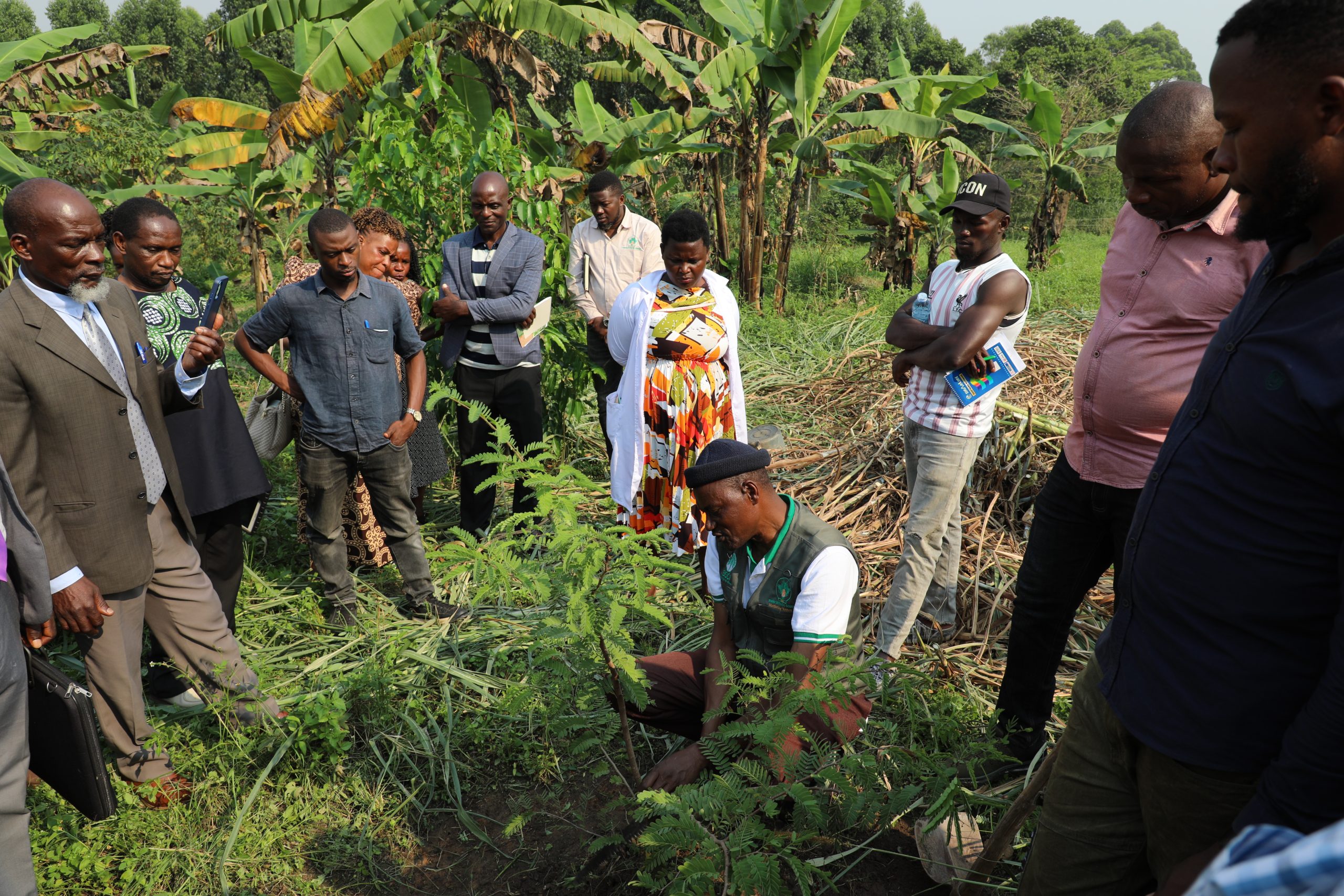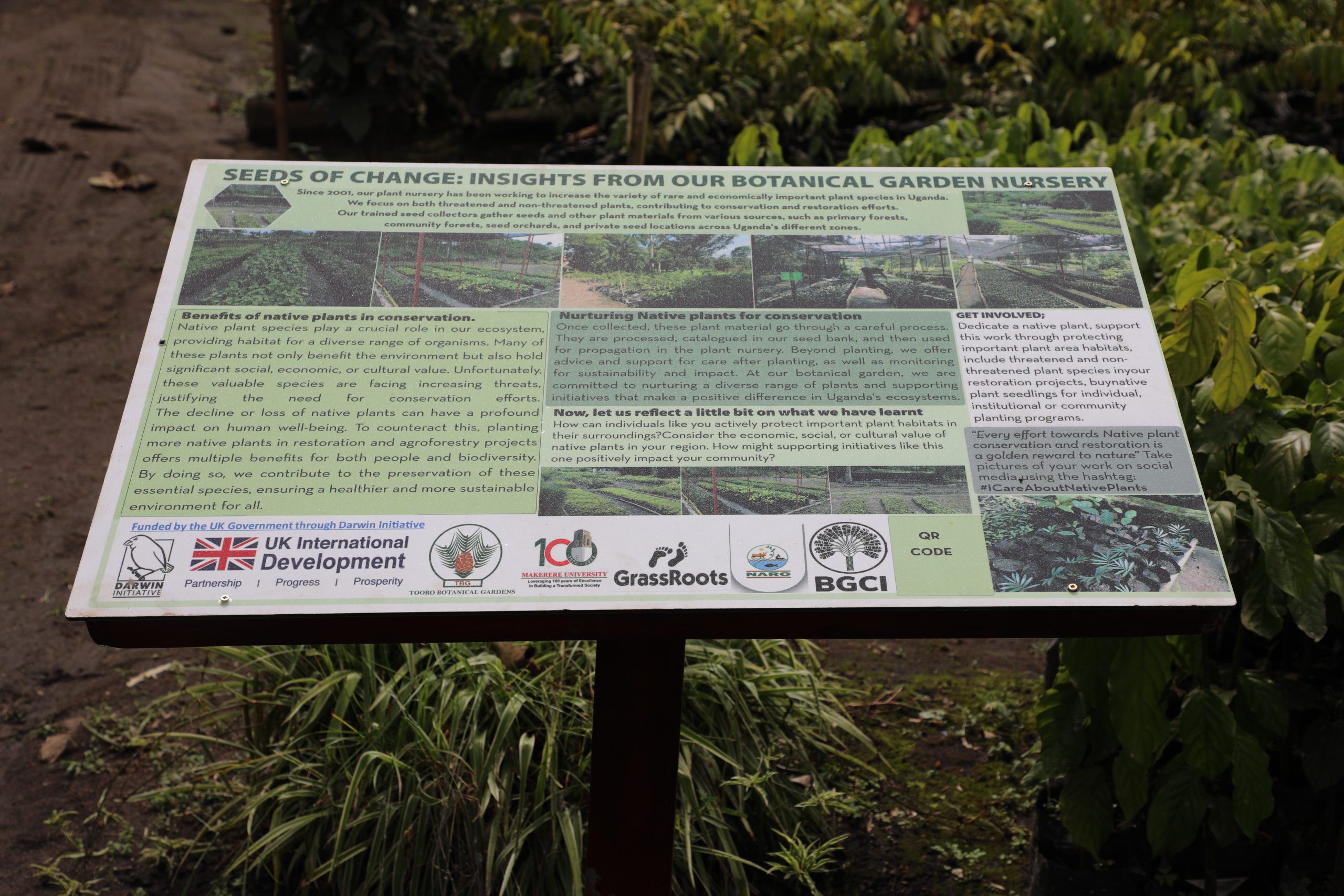Understanding Ugandan native plant species’ role in innovative sustainable landscapes

-
Status of project
Completed -
Region
Africa -
Country
Uganda -
Workstream
Saving Plants -
Topic
Ecological Restoration
Overview
Natural resource degradation in Uganda has increased over the past 30 years, causing biodiversity loss and livelihoods challenges from reduced nutritional diversity and reduced food yields caused by soil erosion and flooding.
Agroforestry reduces degradation, helping to conserve water and prevent erosion, and providing people with better access to diverse and healthy diets (Nkonya et al., 2005; Global Nutrition Report’s Independent Expert Group, 2020). Planting native species increases this impact because they are adapted to the local environment increasing smallholders’ resilience. They also support local wildlife by providing habitat and sources of food.
This project will investigate how native food plant species in diverse agroforestry system could help address these problems. These species will be tested in agroforestry trials, analysed nutritionally, and developed into new food products. The results will then be promoted to rural and urban communities.

Public Awareness Project Output
- 200 farmers and 400 urban community members help design promotion options to reach wider audiences about the benefits of native food species and agroforestry via radio shows and botanic gardens.

Public Engagement Activities
- Co-creation and interpretation training was delivered at the beginning of the project to staff members of Tooro (TBG) and Entebbe Botanical Garden (EBG). Participants gained knowledge into the principles, process, and benefits of co-creation, with a particular focus on engaging community stakeholders.
- Co-creation workshops were run with community members in TBG and EBG aimed to engage the local community in various conservation efforts while promoting awareness of agroforestry techniques and the importance of conserving native plant species.
- Radio programmes and jingles were aired to promote agroforestry and native food plants. Twenty radio programmes about “Unveiling the riches of indigenous flora: Harnessing native plant species for innovative sustainable landscapes in Uganda” were aired at VOT radio in Fort Portal, KRC Radio, Kagadi Broadcasting Service and Elgon FM.
- Three Interpretation panels were installed in TBG about agroforestry, plant nursey and apiary. Each panel has a QR code that links to a video about the topic. Additional information about 3 common agroforestry species (Phoenix reclinata, Vangueria apiculata and Annona senegalensis) have been published in a leaflet.
- Three interpretation panels were installed in EBG, one about agroforestry, another children’s panel with different games for children visiting the garden to engage with the nature around them and also a welcome sign at the entrance of the garden.
- 3 Open Days were run at Lwamunda, Kagadi and Fort Portal engaging local community members, partners and stakeholders in rural and urban settings. The event provided a platform for sharing experiences, disseminating information, and promoting the adoption of sustainable land management practices in Uganda’s agroforestry systems.
Partners
Supported by the UK governments’ Darwin Initiative Innovation Fund, this project is implemented in partnership with Tooro Botanical Garden (TBG), Entebbe Botanical Garden (EBG), Makerere University, GrassRoots.
This 2-year project started in April 2022 and ran until March 2024.

Funded by the UK Government through Darwin Initiative

Resources
- Videos made by TBG as part of the interpretation panels about agroforestry, apiary, and plant nursery.
- Interpretation panels
